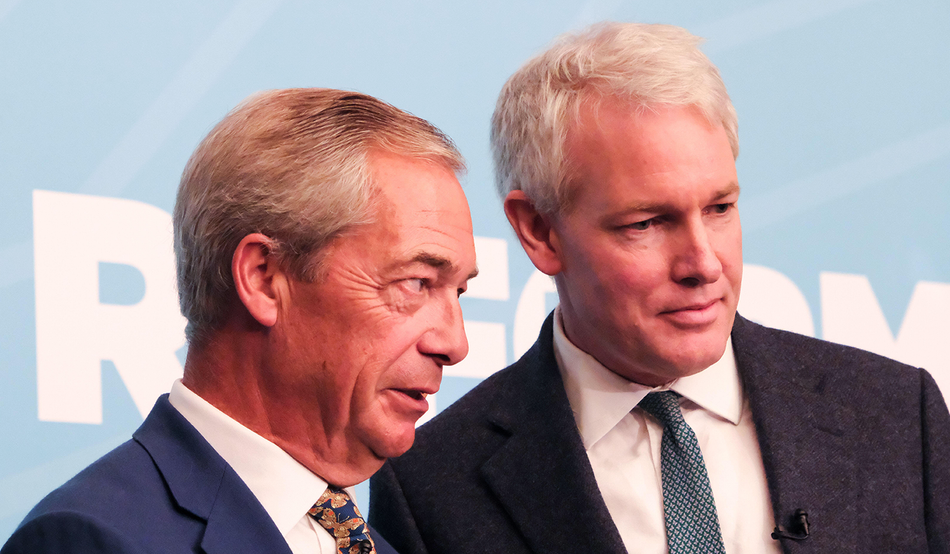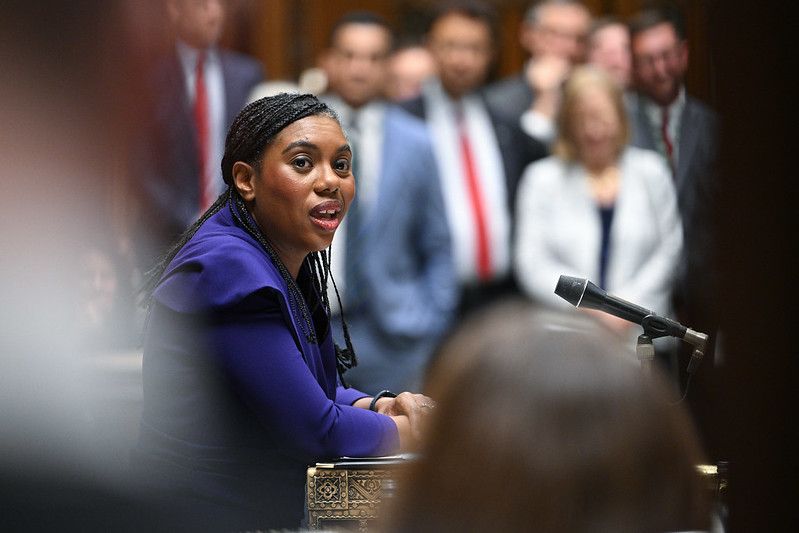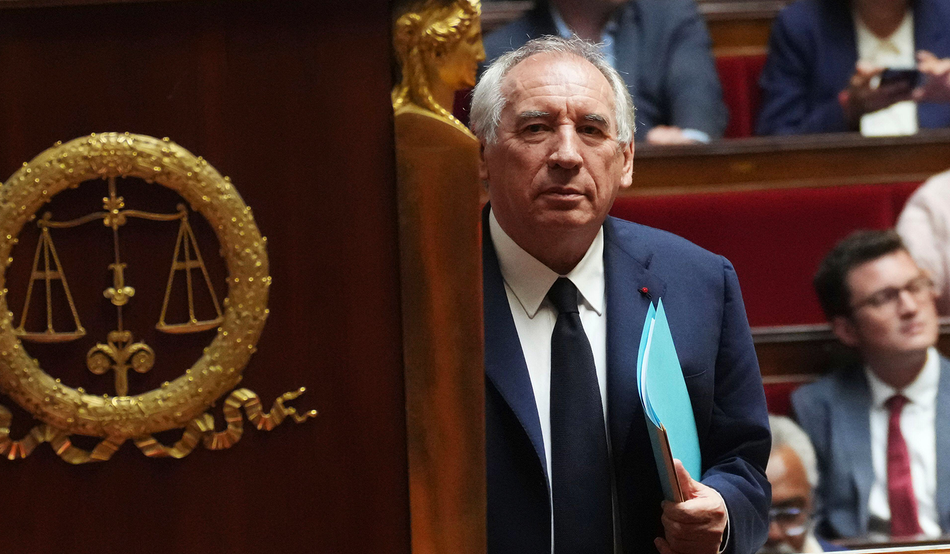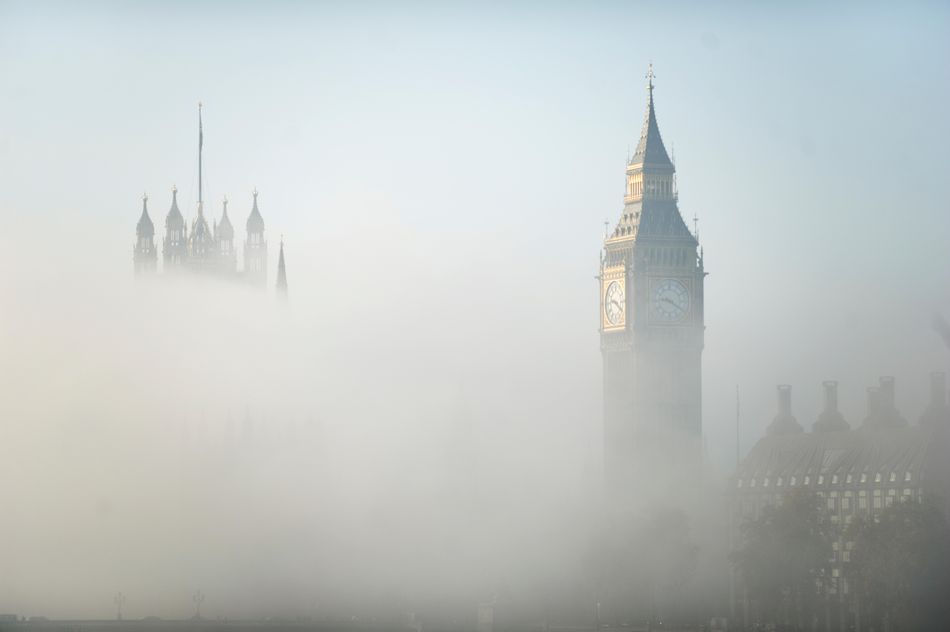Danny Kruger and Maria Caulfield may be just two of many Conservatives defecting to Reform UK before the next election. For unless they can find a credible leader—and fast—to take on Nigel Farage, the Tories could be on the path to extinction as a major party. It is that serious.
The Tory problem isn’t just that they are well behind in the polls and being eviscerated by Reform in local elections and byelections. At various times in the last 50 years, both major parties have fallen to third place behind the Lib Dems and its predecessor parties. Both have lost byelections and local elections to such parties without facing oblivion themselves.
The difference this time is that Farage and Reform aren’t just competing with the Tories. They are systematically replacing them—their leadership, their members, their ideas, their journalists, their media, their donors and now their elected representatives. Partly this is taking place through (mostly Tory) defections, but it is also partly transpiring through new people and resources gravitating directly to Reform. The stronger Reform becomes, the more there will be of both defections and new blood. This will be mutually reinforcing.
What’s happening is potentially devastating for the Tories even by comparison with the decline of the Liberals from major party status in the 1920s. For Lloyd George’s Liberals weren’t entirely replaced: rather, they were squeezed from left and right. Liberalism continued (fairly successfully) as a creed, however. The Liberal party remained in play, often doing fairly well as a third force, usually at the expense of whichever major party was in government at the time.
By contrast, the Farage project is a right-on-right replacement of the Tories. If it gains further critical mass, it is not clear that there will be space even for a rump centre-right Tory party, given the persistence of the Lib Dems in the centre, particularly in more affluent southern England constituencies.
Reform is Farage’s third political vehicle since the early 1990s, when he set out as a self-proclaimed radical Thatcherite, anti-EU and anti-immigrant campaigner. His rise hasn’t been linear. Rather, like Marine Le Pen in France, a combination of longevity untainted by office and a respectable elite background masquerading as anti-establishment, allied to an extraordinary talent for strident populism without quite falling into the gutter of the violent far right, has given Farage high media salience spanning a whole political generation. It is this that has enabled him to exploit the collapse of the Tories.
Today, eight years after the Brexit vote which marked the start of Farage's ascendancy in earnest, and Trump's first election victory, both are once again in the headlines. The week of the most significant Tory defection to Reform yet is also the week that Trump is on his second state visit to the UK.
By defeating David Cameron in 2016, and making Brexit the central populist project of a Tory party whose leadership mostly hated the idea as a repudiation of half a century of apparently successful European political and economic integration, Farage became the spiritual leader of Britain’s political right wing. His personal reverse takeover of the Tory party by means of Reform has turned on a series of subsequent, equally fateful developments.
Six such “Farage moments” stand out since the Brexit referendum, all of them against a backdrop of endemic post-2016 economic and political weakness, worsened by the Covid crisis. First came the failure of the centrist campaign to hold a second Brexit referendum in 2018-19. Second, the discrediting and collapse of Boris Johnson after his victory in the 2019 election on a “progressive Brexit” platform.
Third, the post-2020 “Boriswave” of mass immigration, including the small boats bringing asylum seekers headed for Dover across the Channel, which no prime minister since Johnson has been able to stop. The small boats have been a constant backdrop to Farage for the past five years.
Fourth, the successful launch of GB News in 2021 as a populist British version of Fox News in the US, giving huge billing to Farage personally.
Fifth was Farage’s election to the House of Commons in last year’s general election, which for the first time made him a conventional party leader eligible for office. This was followed—the sixth and final key development—by the election as Tory leader of Kemi Badenoch. She has been rapidly and comprehensively overshadowed and outgunned by Farage.
All of which brings us to a seismic moment in British politics, where one major party may be on the verge of being replaced by another. It is not yet a done deal. Badenoch could be replaced, and a successor has a chance of stemming the tide. But the clock is ticking. Major elections to local authorities and devolved assemblies are only seven months away, and Farage has the momentum.














